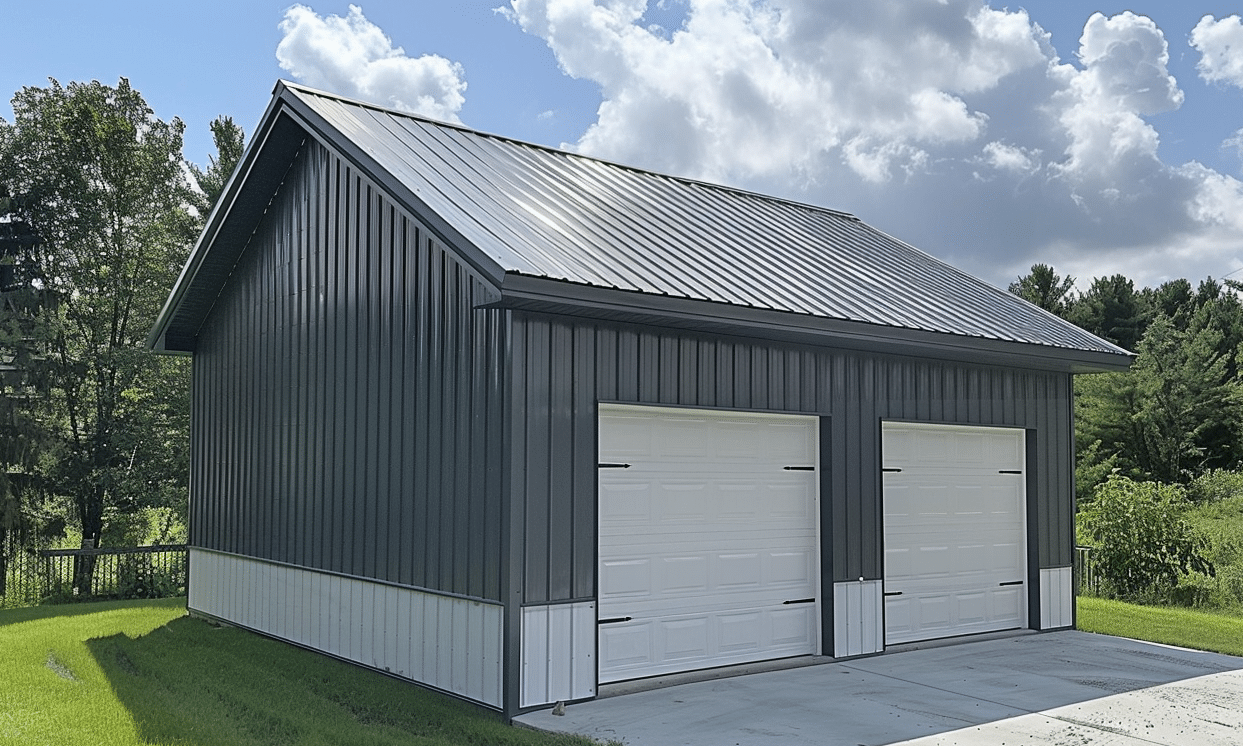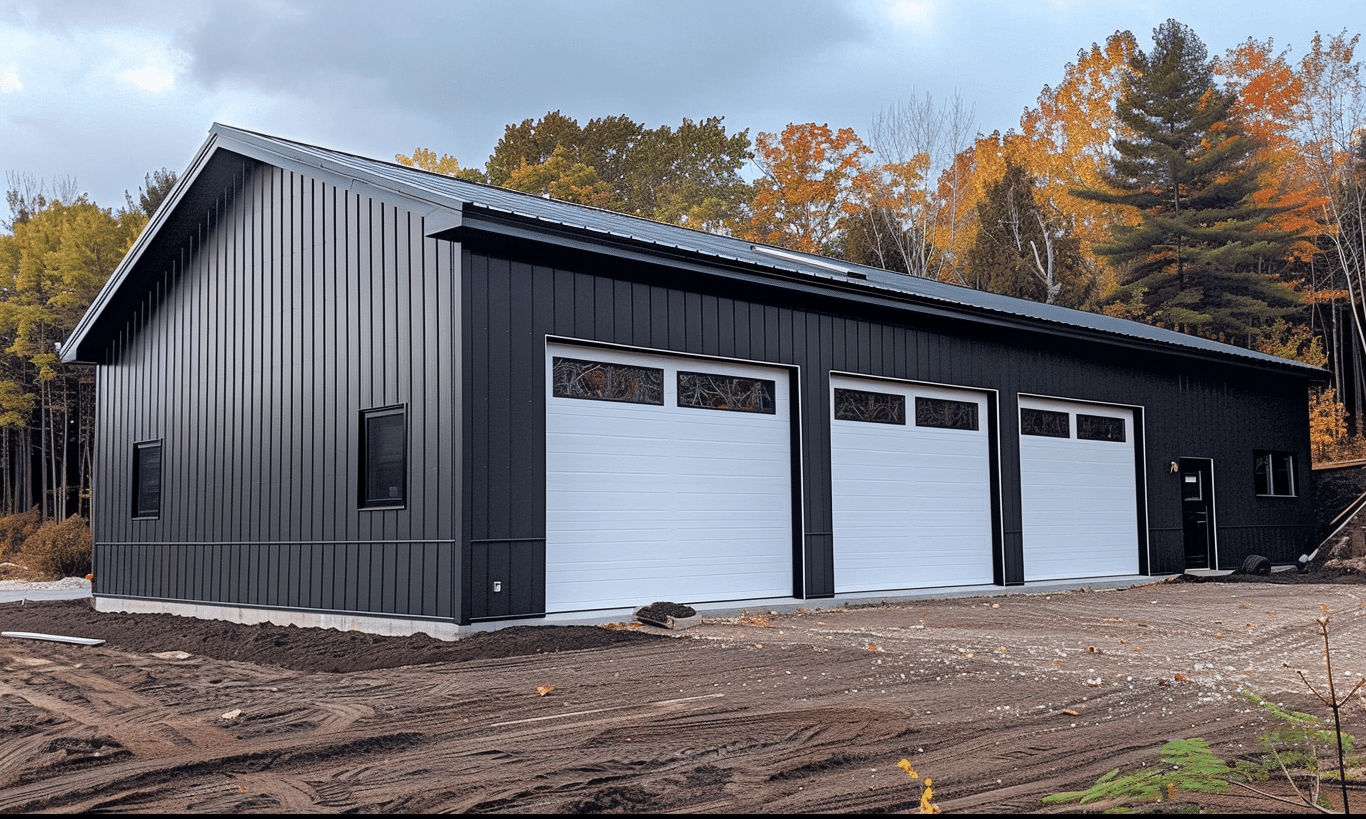When it comes to investing in real estate, garages can add significant value to your property. However, choosing the perfect garage size for your investment property can be a crucial decision that impacts your return on investment. Whether you are investing in Toronto real estate or elsewhere, a well-planned garage can enhance your property’s attractiveness and functionality. In this article, we’ll explore the essential factors to consider for selecting the right garage size.
Why Garage Size Matters
Garages are more than just a place to park your car; they serve multiple purposes such as storage, workshops, and even living spaces. The size of the garage you choose can directly affect the overall value of your investment property and its appeal in the housing market. Here’s why:
– **Increased Property Value**: A properly sized garage often adds significant value to a home, providing a strong selling point for potential buyers.
– **Enhanced Utility**: A spacious and well-designed garage offers additional storage and workspace, appealing to a broader range of tenants.
– **Improved Curb Appeal**: A stylish, appropriately sized garage enhances the property’s exterior, making it more attractive.
So, how do you select the perfect garage size for your property? Let’s delve into the key factors.
Assessing Your Needs and Goals
Before deciding on the garage size, determine what you aim to achieve. Do you need extra storage space, or are you planning to create a workshop area?
Purpose of the Garage
The function of the garage will largely dictate its size:
– **Storage and Parking**: If the primary purpose is parking cars, a smaller garage, like the 12×20 garage package, might suffice.
– **Workspace and Hobby Areas**: A larger garage space will be necessary if you plan to integrate a workshop or hobby area.
– **Multi-Functional**: If the garage will serve multiple functions, you may need to consider an even larger space.
Determine Vehicle Sizes
Consider the types of vehicles that need to be accommodated. Standard cars, SUVs, trucks, and recreational vehicles require different amounts of space:
– **Compact Cars**: Typically need a smaller garage.
– **SUVs and Trucks**: Require more room both in length and width.
– **Special Vehicles**: RVs or boats necessitate significantly larger garages.
Local Real Estate Market Considerations
When making decisions about your investment property, understanding the local real estate market is crucial. Current trends in the housing market can offer valuable insights:
– **Demand for Garages**: Research whether homes with garages are in high demand in the area.
– **Property Value Increase**: Understand how much value a garage of a certain size might add to similar properties.
– **Neighborhood Standards**: Ensure that your garage size aligns with standard practices in the neighborhood for better marketability.
For instance, investing in Toronto real estate needs a close look at what the local buyers or renters are looking for.
Budget Considerations
Your budget will naturally affect your choice of garage size. Here are a few considerations:
– **Building Costs**: Larger garages cost more to construct and maintain.
– **Return on Investment**: Consider how much extra income or increased property value a larger garage might bring.
– **Financing Options**: Sometimes it might be worth looking into financing options for building the garage.
All these factors play a role in deciding the optimal garage size for your investment property.
Optimal Sizes for Different Scenarios
Based on the above factors, here are common garage sizes and situations where they might be ideal:
– **One-Car Garages**: Typically, 12×20 to 14×22 feet. Ideal for small properties or where parking space is limited.
– **Two-Car Garages**: Generally, 20×20 to 24×24 feet. Suitable for suburban homes and dual-car families.
– **Three-Car Garages**: Usually 24×30 feet or larger. Perfect for larger properties, hobbyists, or those needing extensive storage space.
Here’s an example of the 12×20 garage package, a versatile option that can suit a variety of needs.
Practical Considerations for Construction
When planning the construction of your garage, consider practical aspects that can influence both the size and functionality:

Local Building Codes
Ensure compliance with local building codes and regulations. These codes may dictate minimum sizes, setback requirements, and other critical dimensions.
– **Permits**: Obtain necessary permits before starting construction.
– **Inspections**: Schedule inspections at various construction stages to ensure compliance.
Professional Advice
Engaging with a professional can provide valuable insights into the appropriate garage size and features that will maximize your investment.
– **Architects and Designers**: Can help optimize the layout and ensure the design maximizes your space.
– **Contractors**: Provide accurate estimates and practical advice on construction feasibility.
Future-Proofing Your Investment
Anticipate future needs to ensure your garage remains a valuable asset:
– **Potential Expansions**: Design with the possibility of future expansions in mind.
– **Modern Features**: Incorporate modern amenities like electric car charging stations to stay ahead of trends.

Considerations for Renters
If your property is a rental, consider the needs of potential tenants:
– **Storage Needs**: Renters often value additional storage.
– **Parking Availability**: Ensure adequate parking space as it can be a critical factor for renters, influencing their decision to choose your property.

Conclusion: Making the Right Choice
Choosing the perfect garage size for your investment property involves balancing immediate needs with future potential benefits. It’s about blending practicality with foresight to ensure you maximize your return on investment. Whether you go for a smaller option like




